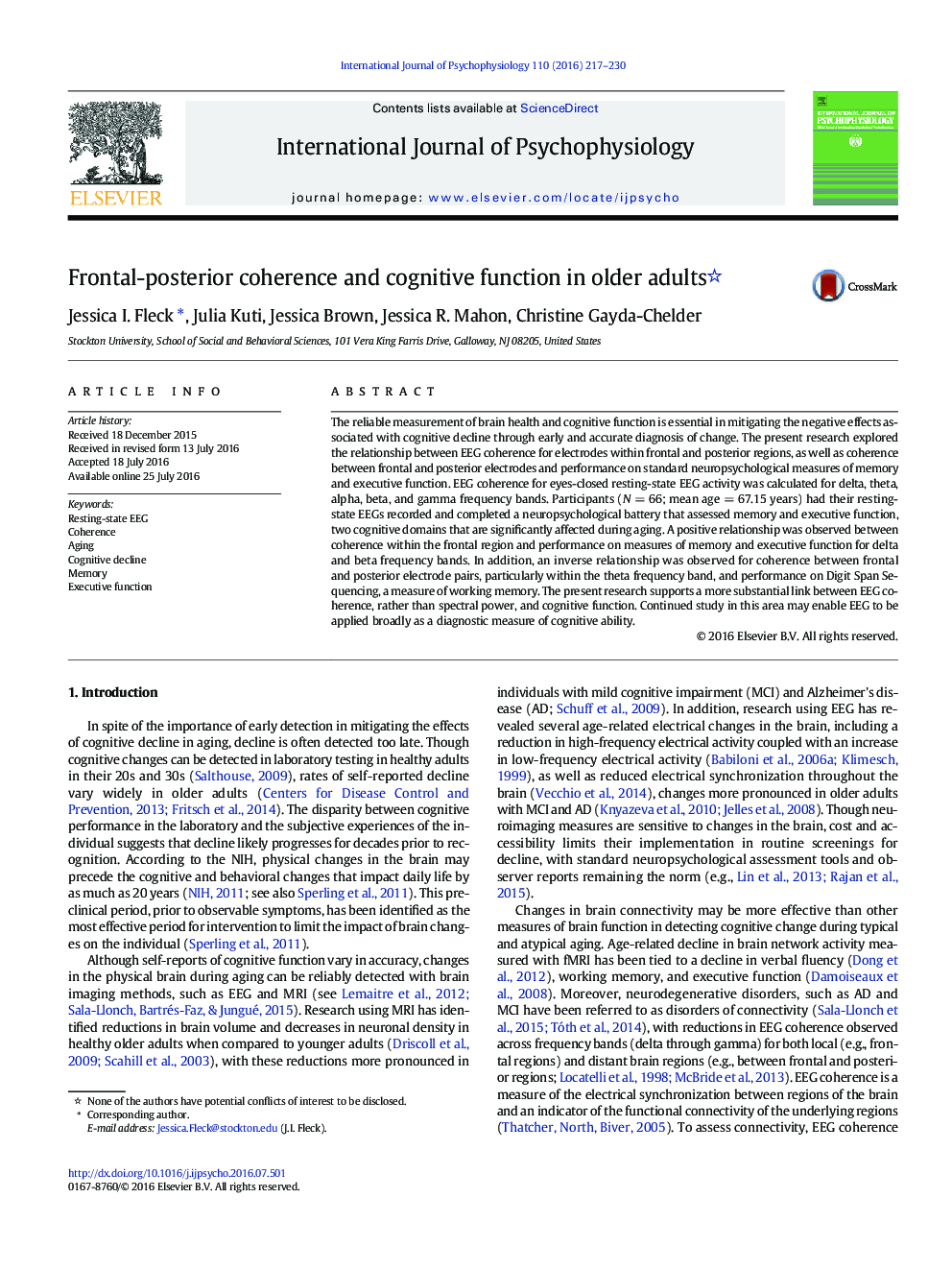| Article ID | Journal | Published Year | Pages | File Type |
|---|---|---|---|---|
| 5042402 | International Journal of Psychophysiology | 2016 | 14 Pages |
â¢After controlling for age, frontal and posterior EEG coherence was related to neuropsychological assessment performance.â¢Frontal coherence in delta and beta frequencies was positively correlated with memory and executive function performance.â¢Decreased theta coherence between frontal and posterior regions was associated with higher working memory capacity.â¢Resting-state coherence was sensitive to cognition in healthy aging, supporting its use as an indicator of brain health.
The reliable measurement of brain health and cognitive function is essential in mitigating the negative effects associated with cognitive decline through early and accurate diagnosis of change. The present research explored the relationship between EEG coherence for electrodes within frontal and posterior regions, as well as coherence between frontal and posterior electrodes and performance on standard neuropsychological measures of memory and executive function. EEG coherence for eyes-closed resting-state EEG activity was calculated for delta, theta, alpha, beta, and gamma frequency bands. Participants (N = 66; mean age = 67.15 years) had their resting-state EEGs recorded and completed a neuropsychological battery that assessed memory and executive function, two cognitive domains that are significantly affected during aging. A positive relationship was observed between coherence within the frontal region and performance on measures of memory and executive function for delta and beta frequency bands. In addition, an inverse relationship was observed for coherence between frontal and posterior electrode pairs, particularly within the theta frequency band, and performance on Digit Span Sequencing, a measure of working memory. The present research supports a more substantial link between EEG coherence, rather than spectral power, and cognitive function. Continued study in this area may enable EEG to be applied broadly as a diagnostic measure of cognitive ability.
